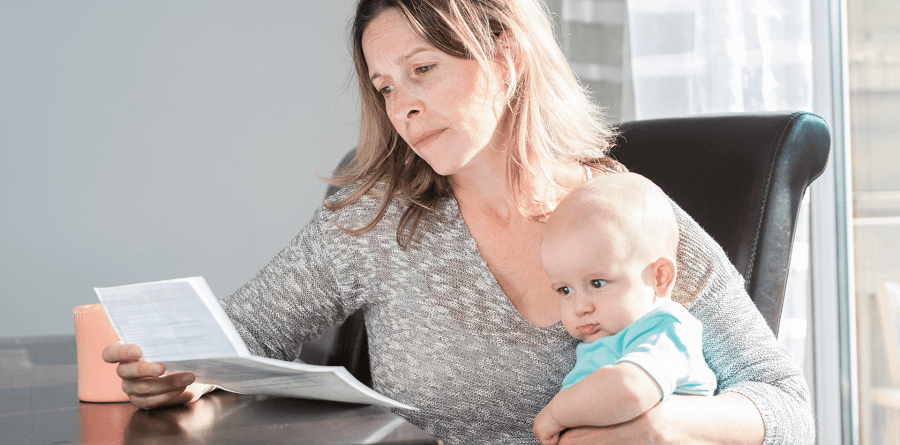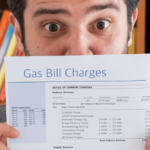The energy price cap will rise by 54% in April 2022. The government has announced up to £350 in support to address the rise in the cost of energy tariffs.
Price Cap
The price cap is normally reviewed twice a year and it sets a limit on the maximum amount or value charged for each unit of gas or electricity. This is applicable to customers on a standard tariff and it also sets a maximum daily standing charge value – (charges paid to have your property connected to the grid)
Please find below some tips that could assist in monitoring your energy usage and managing your bills if you are struggling to make payments.
A) Talk to your energy provider
For credit meters
It’s important to talk to your supplier once you notice that you are struggling to pay your energy bills. According to Ofgem rules, your supplier has to provide some assistance with negotiating a payment plan that is affordable.
Energy suppliers can offer the following measures if you are struggling to pay your bills:
- Longer time to pay
- Reasonable and affordable debt repayment options
- Slight reduction in payments
- Complete review of accounts
- Off small grants using hardship funds
For prepayment meters
Contact your energy provider if you are struggling to top up your meter and potentially facing self-disconnection.
Your supplier should be able to:
- Offer small amounts of emergency credit
- Offer addition support credits for those in vulnerable situations (This is subject to the eligibility criteria from your supplier)
- Review debts current being paid off through your prepayment meter
Energy Hardship Funds
Some energy providers have funds set aside to assist people struggling to pay their energy bills. This may come in form of grants, schemes or other charitable projects
The following energy suppliers have set up charitable trusts:
- British Gas Energy Trust
- EDF Energy Customer Support Fund
- Ovo Energy Fund
- Octo Assist Fund
- Scottish Power Hardship Fund
- E.on Energy Fund
- E.on Next Energy Fund
Please note: the eligibility criteria of each supplier will vary from the other
B) Government Support
The government will provide up to £350 to assist with the increase in energy prices.
New. Households to get up £350 help this year to help with rising energy prices
There will be a £200 rebate loan in October and this will be applicable to all households. This will be repaid from April 2023 when a £40/year levy is added to sort out the repayments
There will be a £150 council tax rebate in April to all households in England, Scotland and Wales for those in bands A to D.
There will be a £144 million discretionary fund for councils aimed at those with low incomes who do not qualify for assistance due to their council tax band.
Warm Home Discount
You could get £140* off your electricity bill for winter under the Warm Home Discount Scheme.
The money is not paid to you – it’s a one-off discount on your electricity bill, between October and March.
You may be able to get the discount on your gas bill instead if your supplier provides you with both gas and electricity.
There are 2 ways to qualify for the Warm Home Discount scheme:
- you get the Guarantee Credit element of Pension Credit – known as the ‘core group’
- you’re on a low income and meet your energy supplier’s criteria for the scheme – known as the ‘broader group’
Core Group
- You should receive a letter which may ask you to confirm your details between October and December
- The discount will then be automatically applied
If you do not get a letter by December and think you’re eligible, please contact the Warm Home Discount hotline at 0800 731 0214
Broader Group
- You must apply directly to your supplier every year, with applications typically opening during the summer months.
- Please be aware this scheme is “first-come, first-serve” so it is best to contact your supplier sooner rather than later to make sure your application is entered on time.
Each supplier also has its own set of criteria to qualify so contacting them directly is the best way to know if you are eligible.
Fuel Direct / Third Party Deductions
If you are on certain benefits, you can use your benefits to pay off your energy debt through this government scheme. The Department of Work and Pensions would take a set amount from your benefits each week to pay both your debt and ongoing costs so that you would not even have to think about it.
To apply, you would need to contact Jobcentre Plus or your pension centre.
You can apply for this method of payment if you are on the following benefits:
- Universal Credit
- Income-based Jobseeker’s Allowance
- Income-related Employment and Support Allowance
- Income Support
- Pension Credit
Winter Fuel Payments
If you were born on or before 26 September 1955 you could get between £100 and £300 to help you pay your heating bills. This is known as a ‘Winter Fuel Payment’.
You will get your Winter Fuel Payment automatically (you do not need to claim) if you’re eligible and either:get the State Pension or another social security benefit (not Housing Benefit, Council Tax Reduction, Child Benefit or Universal Credit)
Telephone: 0800 731 0160 or visit this website.
Cold Weather Payment
- Extra payment if you receive certain benefits – see here.
- You would normally receive it if the temperature in your area is 0oC or below daily for 7 days
- You’ll get £25 for each 7-day period of very cold weather between 1 November and 31 March.
C) Help from Charitable Organisations
This is different from government schemes and the following organisations might be able to offer support and advice:
- Home Energy Scotland Contact: 0808 196 8660
- National Energy Action (NEA) Contact: 0800 304 7159
- NI Energy Advice Contact: 0800 111 4455.
- Citizens Advice. Contact: 0808 223 1133 (England/Wales)
- StepChange Contact: 0800 138 1111
- MoneyHelper Contact: 0800 138 7777
- National Debt Line. Contact: 0808 808 4000.
- Age UK Contact: 0800 169 6565 (0800 124 4222 in Scotland)
- Scope Contact: 0808 801 0828
D) Miscellaneous Tips:
Some other things to consider are:
- Provide regular meter reads to your energy supplier so you only pay for what you use
- Pay by direct debits
- Use less energy
- Review your outgoings
- Use the heating only when you need it – don’t leave it turned on all day
- Make a complaint to the OMBUDSMAN if your supplier is not ready to assist you



